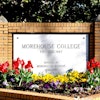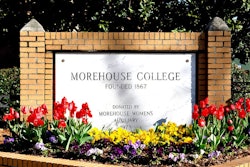In a unanimous decision Monday, the U.S. Supreme Court ruled against the National Collegiate Athletic Association (NCAA)—citing their restrictions on education-based benefits for student athletes as “unlawful.”
With the current cap of $5,000 for institutions to offer education-related benefits, a group of former NCAA Division I football and basketball players claimed the athletic association violated federal anti-trust laws.
In a message to the court, Justice Neil M. Gorsuch wrote “some will think the district court did not go far enough. By permitting colleges and universities to offer enhanced education-related benefits, its decision may encourage scholastic achievement and allow student-athletes a measure of compensation more consistent with the value they bring to their schools. Still, some will see this as a poor substitute for fuller relief.”
This ruling could allow schools to financially support students outside of tuition, room and board for expenses such as tutoring, study abroad programs and internships.
“It seems that a unanimous decision from the Supreme Court firmly sets the NCAA on a course to reconsider any kind of future restrictions on student athletes, whether it be scholarship limits, NIL and compensation,” said Dr. John Grady, professor of sport and entertainment management at the University of South Carolina. “It is basically saying that the amateurism defense or argument is not going to win the day and be unique enough to survive anti-trust scrutiny.”
With Gorsuch writing “the national debate about amateurism in college sports is important but our task as appellate judges is not to resolve it,” the decision around whether student athletes can receive salaries remains unclear.
However, despite not addressing the issue directly in this case, Justice Brett M. Kavanaugh referenced it during his remarks.














